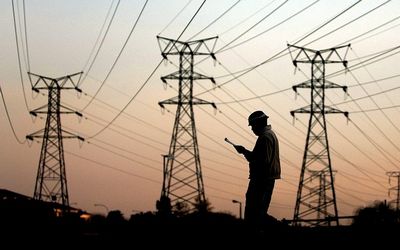
FOLLOWING a dry spell which has adversely affected almost half of the country in the 2018-2019 rainy season, it has become necessary for power utility firm Zesco to ration the supply of power to its domestic and industrial clients.
Erratic rains have resulted in low water levels at Zesco’s hydropower plants such as Kariba Dam and Itezhi Tezhi.
Cutting back on electricity supply to households and industries will certainly have a negative impact on the economy.
However, it has become inevitable in view of the dry spell. If Zesco had a way, it would not resort to cutting back on electricity supply because this will eat into the power utility’s revenue base.
But this is the consequence of climate change which the country did not bargain for, but should now be planning ahead for. Plans that are already in place must be accelerated.
Now, households, businesses – small, medium and big – will have to come to terms with power rationing otherwise known as load-shedding.
When calamities such as droughts hit us, it reminds the country of the sad reality about the country’s over-dependence on hydropower.
Hydropower generation, despite being the country’s mainstay of electricity, is a risky undertaking due to its vulnerability to climate change.
In 2015, the country experienced a severe energy deficit and crisis on account of low water levels resulting in inadequate power generation.
The country’s hydropower resource potential is estimated at over 6,000 MW. Currently, the installed capacity stands at about 2,700 MW.
Of this, small- and medium-sized power generation accounts for less than two percent.
The country has rich potential in renewable energy resources such as biomass, solar, wind and geothermal, which are currently under-utilised.
That is why there has been emphasis of late for the country to seriously consider having a rich mix of energy sources.
Progress has been made with the thermal plant at Maamba Collieries Limited, built at over US$840 million and generating 300 megawatts which is fed into the national grid.
With the help of the International Finance Corporation and the World Bank Group, Government is putting up several solar power projects around the country.
The recent commissioning of the completion of the solar photovoltaic plant for the Bangweulu Power Company Limited in Lusaka South Multi-Facility Economic Zone is one of the perfect examples of Government efforts in embracing renewable energy.
There are also a couple of other projects in the pipeline.
However, the task of diversifying sources of energy cannot be left to Government alone. The private sector, too, should come on board if the country is to keep pace with economic growth.
At household level, families and individuals should consider switching to gas stoves as well as installing solar panels to ensure their critical gadgets are operational.
Zesco, on the other hand, should publicise the load-shedding schedule so that all power consumers are aware when they are going to be affected.
The power utility should also ensure that the power rationing should not hamper production levels in industries, farms as well as small and medium businesses remaining in business during the load-shedding period.
Zesco should come up with a win-win situation with industry by ensuring that industry is given power at the agreed time so that there is maximisation of limited resources.
